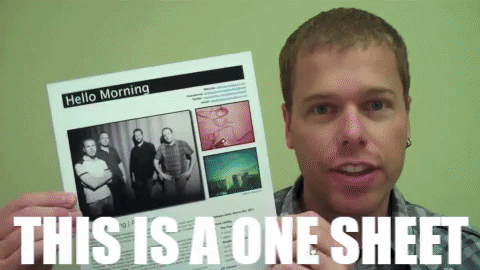What do record labels (actually) do?
One of the reasons I created this website was to help inspire new artists to take charge of their careers and embrace independence. However, I realize that not everyone wants to remain independent forever. Being successful as an unsigned artist is hard; having the backing of a major label (or at least a decent one) can be an attractive offer to anyone entering the music business. Labels can offer a lot to musicians that many cannot acquire on their own such as; financial backing, resources, connections, and the benefit of being surrounded by people with experience in the game.
There are many who do not know what labels are supposed to actually do and what they require in return from artists. This lack of knowledge leads many to have unrealistic expectations on both sides (artists, and those looking to start a label). This article will fill in the gaps about what is common knowledge and what you actually need to know about labels. Below I will address how labels make their money, what they are actually supposed to do for the artist, and how the successful labels choose to sign talent.
How record labels make money
Record labels make their bread by… You guessed it, selling records. Back in the day, this was accomplished by selling CDs. Labels would typically take about a 30% cut of the profits. The reaming 70% would be split amongst; manufacturers (5%), producers (2.2%), songwriters (4.5%), distributors (22%), the retailer (30%) and the artist (6.6%) approximately. The artists and songwriter share of the pie may seem stingy, however, if the album sells 400,000 copies at $16 then there is enough money to make everyone happy. (or at least keep complaining to a minimum.) However, the glory days of the CD are far behind us and streaming has taken over as the primary way consumers listen to music. It takes about 1500 streams to equal one, that’s right ONE album sale.
A new way
As you might know, artists make their REAL bread and butter from live performances and merchandising. When booked for a show the artists keeps the lion share of the profits and they distribute 15-20% to a booking agent if they helped them land the gig while the label they are signed to gets ZERO. But that was when albums were still popular. Now many major labels have begun signing artists to the infamous 360 deal, one of the many things Joe Budden was screaming about to Lil Yachty recently. What this deal does essentially is allow the label to take profits from every aspect of the artist career while helping them build their brand.
What labels (should) do
This topic is a little tricky as the answer is based on the type of deal the artists has signed. The above mentioned 360 deal, for instance, allows the label to dabble in all aspects of an artist’s career, while a distribution deal only requires the label to help the artist get his work into stores. This is key, especially for the artist because signing the wrong deal may not adequately provide all that they require or allows the label to interfere more than the artist would like.
How do labels choose who to sign?
It has never before in the history of the music industry been riskier for a label to sign an artist. It’s easy for artists to think that these companies have billions lying around to invest in their dreams and help them succeed, but they don’t. Even if they did a record label is a business and in business, everyone wants a return on investment. In the past labels could spend the time money to help an artist develop and build a fan base. Now, labels are looking to minimize their risk and investment and sign acts that have already gained a following that they can tap into. Artists who are proven performers and capable of making songs that people actually want to hear are prime targets for labels. A lot of people have talent however now artists have to have the business mind and a little luck to get the attention they want from labels. This makes it a bit harder but certainly more rewarding for artists as they are now in the driver’s seat and can negotiate the terms they want while having the option to walk away.
For those who are looking for a deal, I suggest you stop and shift focus. Build yourself and your brand and create a buzz. Learn to market your music and start doing shows. Develop as many skills as you can and then the opportunities will come to you.
For those who want to start a label, you have to be realistic about what you can offer and construct ways for you to win. Look for proven talent versus those you think have talent. Look for help in spotting potential acts that could boost your labels presence and profit margins. For both parties I recommend you stay creative and business minded. Outline your goals and take the time to analyze your moves to see if they are putting you in the position you want to be.







Recent Comments